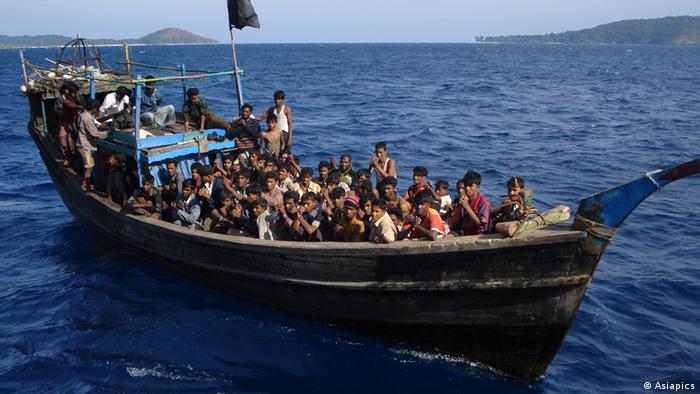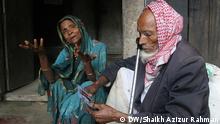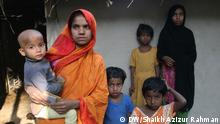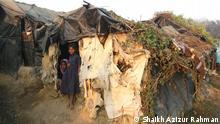UN Urges Inquiry over Rohingya
Killings
GENEVA – Blasting the military crackdown on Rohingya Muslim minority in Burma’s Arakan state, UN human rights chief Navi Pillay has called for an independent investigation into rising claims of abuses by security forces amid reports that some 80,000 people have been displaced in the recent inter-communal clashes.
"We have been receiving a stream of reports from independent sources alleging discriminatory and arbitrary responses by security forces, and even their instigation of and involvement in clashes," said Pillay, the UN High Commissioner for Human Rights, the BBC reported on Saturday, July 28.
"Reports indicate that the initial swift response of the authorities to the communal violence may have turned into a crackdown targeting Muslims, in particular members of the Rohingya community."
| Rohingya Muslims...An Open Wound |
Sectarian violence plagued the western Arakan state last month after the killing of 10 Muslims in an attack by Buddhist vigilantes on their bus.
The attack came following the rape and killing of a Buddhist woman, for which Buddhists blame Muslims.
The violence has left dozens of people dead and tens of thousands homeless.
The official death toll of the rioting and its aftermath has been put at 78, although the real figure may be much higher.
Questioning the official death toll, Pillay welcomed a government decision to allow a UN envoy access to Rakhine state next week, but said it was "no substitute for a fully-fledged independent investigation".
Pillay’s comments followed the announcement of the UN refugee agency (UNHCR) that about 80,000 people have been displaced following inter-communal violence in and around the towns of Sittwe and Maungdaw.
"Some displaced Muslims tell UNHCR staff they would also like to go home to resume work, but fear for their safety," spokesman Andrej Mahecic said.
Thousands of Rohingya Muslims fled their homes after ethnic tensions rocked the western state of Arakan.
Observers have said that Burmese monks were seen blocking international aid to Muslim refugees, who fled their homes in the recent bout of violence.
Muslim Pressures
Getting an increased attention from the Muslim world, Rohngya plight has received support from Muslim groups worldwide who increased pressure on the Burmese government to stop human rights abuses.
"This is an issue around which Burmese or ethnically Burman nationals rally around, and that is part of the problem," Jim Della-Giacoma of the International Crisis Group told Voice of America on Friday.
"So any sort of threats from outside groups would only enforce or harden that nationalism and definitely not help the problem."
The plight of the Muslims in Burma's western Arakan state has long been a concern of the global Muslim community.
But attention has intensified in recent weeks after longstanding tensions erupted between Rohingya Muslims and Buddhists.
Amnesty International said Friday that Rohingya Muslims are increasingly being hit with targeted attacks that have included killings, rape and physical abuse.
Condemning the anti-Muslim abuses, Iran termed the conflict as a religiously inspired "genocide."
Several groups have also joined the conversation, including the Pakistani Taliban, which on Thursday threatened to attack Burma to avenge the abuses against the Rohingya population.
Despite the rejection from some prominent Rohingyas, Chris Lewa of the Arakan Project, an NGO that monitors Rohingya issues, said that Burma's military reportedly arrested 38 Muslim religious leaders in northern Rakhine state Thursday following Taliban threats.
"It appears that [the Burmese military] has responded in arresting a number of imams and mullahs from Maungdaw and Buthidaung along the border with Bangladesh," said Lewa.
Described by the UN as one of the world's most persecuted minorities, Burma's ethnic-Bengali Muslims, generally known as the Rohingyas, are facing a catalogue of discrimination in their homeland
They have been denied citizenship rights since an amendment to the citizenship laws in 1982 and are treated as illegal immigrants in their own home.
The Burmese government as well as the Buddhist majority refuse to recognize the term "Rohingya", referring to them as "Bengalis".
















